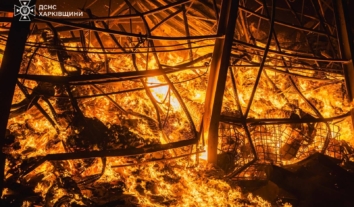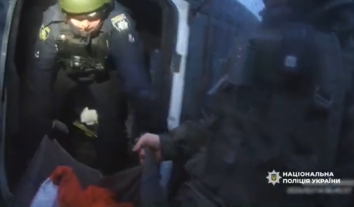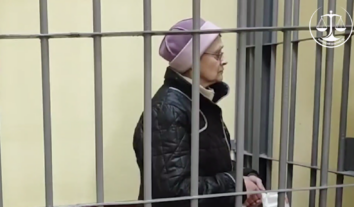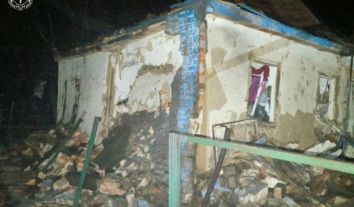Human Rights Advocates Tell About the Human Rights Situation in 2014
Normal
0
false
false
false
RU
X-NONE
X-NONE
/* Style Definitions */
table.MsoNormalTable
{mso-style-name:”Обычная таблица”;
mso-tstyle-rowband-size:0;
mso-tstyle-colband-size:0;
mso-style-noshow:yes;
mso-style-priority:99;
mso-style-qformat:yes;
mso-style-parent:””;
mso-padding-alt:0cm 5.4pt 0cm 5.4pt;
mso-para-margin-top:0cm;
mso-para-margin-right:0cm;
mso-para-margin-bottom:10.0pt;
mso-para-margin-left:0cm;
line-height:115%;
mso-pagination:widow-orphan;
font-size:11.0pt;
font-family:”Calibri”,”sans-serif”;
mso-ascii-font-family:Calibri;
mso-ascii-theme-font:minor-latin;
mso-fareast-font-family:”Times New Roman”;
mso-fareast-theme-font:minor-fareast;
mso-hansi-font-family:Calibri;
mso-hansi-theme-font:minor-latin;}
74 human rights experts from different regions of Ukraine created and presented an annual report “Human Rights in Ukraine – 2014,” which will be used by the European Court of Human Rights (ECHR), the US government, the European Commission, the Council of Europe, and other international institutions.
Russian aggression had a significant impact on the content of the report. In the context of the hostilities, state authorities have failed to effectively support the protection of the rights and freedoms of Ukrainians.
The authors of the report, among other negative aspects of the authorities, list the failure to provide effective assistance to Ukrainian citizens who became victims of the illegal annexation of Crimea and the armed conflict in the Donbass, or to adequately respond to the challenges posed by Russia.
“When you look back at past events, you wonder why the armed conflict was not warded off from the outset. It could have been done on March 1st, when the Federation Council of Russia [the upper house of the Russian parliament] decided to grant the president the right to enter Russian forces into Ukraine. Or it could have been done on the 2nd of March, or maybe even the night from the 1st to the 2nd, when then RNBO [National Security and Defense Council of Ukraine] should have made a special decision to prepare for a fight against possible aggression and on the reorientation of all institutions, political, military, and economic, to confront Russian aggression,” says the Chairman of the Board of the Ukrainian Helsinki Human Rights Union Mykola Kozyrev, who personally witnessed the events in the Luhansk region.
“Murder, torture, inhumane treatment, acts of terrorism, inflicting great suffering, serious physical injury, damage to health, and violations of personal dignity, including humiliating, degrading treatment, rape, enforced prostitution, forcing prisoners of war and civilians to serve in the armed forces of an enemy state, unlawful deportation, unlawful detention, forcing people to take the citizenship of another country, illegal and full-scale meaningless destruction or appropriation of property – all these became hallmarks of Russian aggression in Ukraine,” says Kozyrev.
He also notes that, some Ukrainian units have violated human rights, including robbing and abusing imprisoned supporters of the so-called “DNR” and “LNR.”
“It is very important for us to record violations on both sides. We cannot have a double standard in assessing these events. Furthermore, if we assess violations by our soldiers not only in ATO, but also in the street, it will be a preventive measure in order to restore the health of the society,” says Mykola Kozyrev.
He believes that the Ukrainian government has not functioned effectively and actively on the international level to recognize the “LNR” and “DNR” as terrorist organizations, and Russia, as a party to the conflict.
“This flies in the face of common sense and is difficult to comprehend when we learn every day about arms crossing the border from Russia. Why not at least take a picture using a satellite and bring it to the UN General Assembly and other international institutions, which would then have to recognize Russia as party to the conflict? If this was recognized, Russia could be deprived of the right to vote in the examination of this armed conflict, in accordance with Article 27 of the UN Charter, in order to ensure peace and order in our territory. I do not know why the efforts and energies of the State are not aimed at collecting the necessary information and bringing it up to international institutions that could consider the facts and make that decision. Today, Russia is blocking any reasonable decisions and maintains that this is an internal conflict in Ukraine which it has nothing to do with and only helps by sending humanitarian convoys,” stated a genuinely surprised Kozyrev.
Experts also recommend that the Parliament adopt draft law number 1788 on the Amendments to Article 124 of the Constitution of Ukraine, and ratify the Rome Statute of the International Criminal Court. Such a document would have a cooling, preventive effect on the terrorists.
Darya Sviridova, an expert from the Ukrainian Helsinki Human Rights Union and an IDP from Crimea, says that the justice system has been destroyed in Crimea: “We cannot say that there is any independent judicial system on the peninsula at all. The majority of the judges there are Ukrainian judges who gave an oath to Ukraine. They do not know the laws of the Russian Federation, but they became Russian judges one day and started to make rulings in accordance with Russian law. Every day they have to express their loyalty to the government, which came to the island, in order to remain in their posts.”
Human rights advocates also note that the process of collecting and recording the necessary evidence of crimes against humanity and war crimes by law enforcement authorities is extremely slow, which jeopardizes the prospects of considering the crimes at the International Criminal Court.
These negative trends have prompted lawyers from Ukrainian Helsinki Human Rights Union to send over 90 appeals to the European Court of Human Rights, while at the same time conducting about 110 strategic court cases on the national level.
At the same time, human rights advocates point out the importance of progressive changes in the Penal Code in order to make penal institutions more transparent, the approval of the Strategy of Development of the internal affairs bodies, the creation of expert advisory groups on reforms for the ministries, and support for volunteer activities at the state level.
Recommendations of the human rights advocates
Experts are convinced that the majority of human rights violations occurred primarily due to the lack of serious constraints and controls placed on the government and legislative support for fundamental rights and freedoms. Therefore, they recommend drafting a new constitution which ensures public scrutiny of law enforcement agencies, a reform of the criminal justice system, and an expansion of the scope of legal aid.
In general, the authors of the report provided officials with over 20 concrete proposals to improve the human rights situation in Ukraine.







